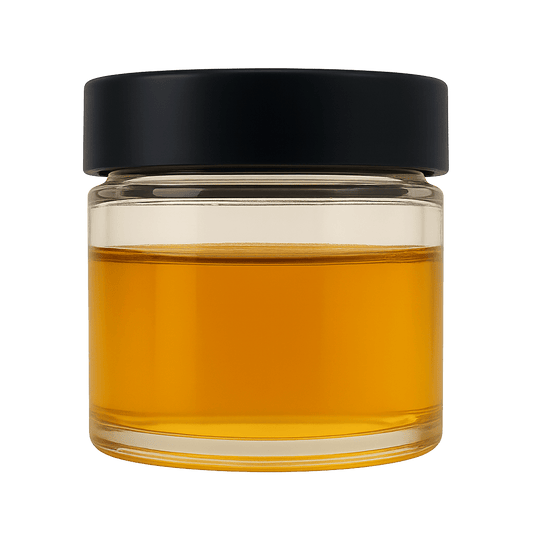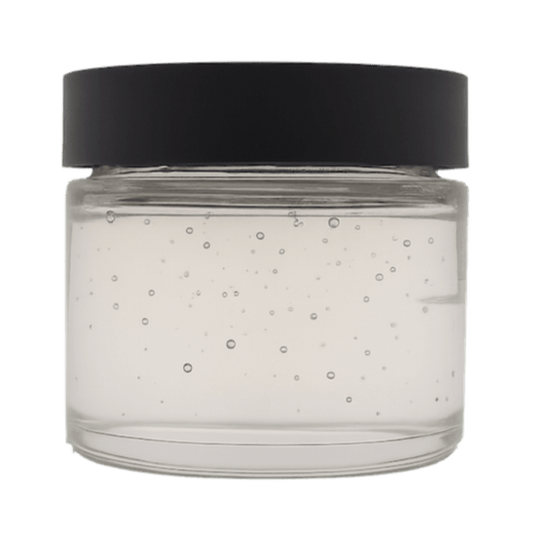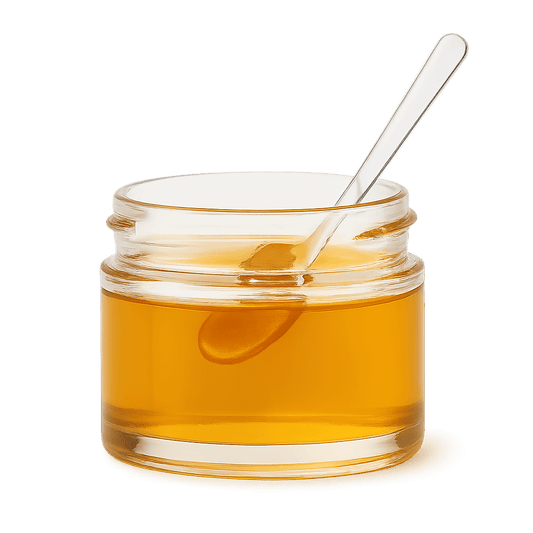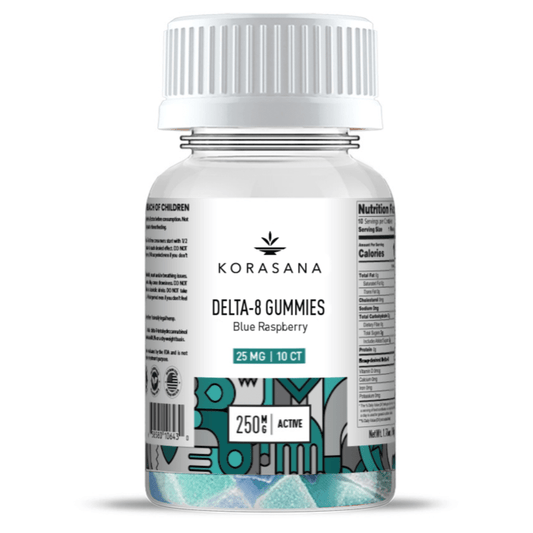Is Delta 8 THC Legal in New York?
NO - Delta 8 THC is Not Legal in New York
As of recent updates, Delta-8 THC is illegal in New York. The state has enacted regulations that prohibit the manufacture, sale, and distribution of Delta-8 THC products. This stance stems from the state's regulations on cannabinoids made through isomerization, including Delta 8. According to the New York State Department of Health's regulations and the New York Cannabis Control Board, the use of synthetic cannabinoids or cannabinoids created through isomerization, like Delta-8 and Delta-10 THC, in the extraction or manufacturing of any cannabinoid hemp products is not permitted.
This decision is part of a broader regulatory framework aimed at managing hemp-derived products and ensuring public safety. Delta-8, which is often synthesized from CBD derived from hemp, falls under the category of cannabinoids created through isomerization, leading to its ban. The state's Office of Cannabis Management has adopted final rules that expressly prohibit D8 THC, among other synthetic cannabinoid products derived from hemp.
These regulations reflect New York's effort to clarify and control the cannabinoid market within the state, including the oversight of manufacturing, laboratory testing, packaging, and labeling standards for CBD and other hemp-derived cannabinoid products. The regulatory landscape in New York aims to align with public health objectives and ensure consumer safety in the rapidly evolving cannabis and hemp markets.
Legal Status of Delta 8 in New York
The legal status of Delta-8 in New York is dictated by a series of regulations and legislative actions that culminated in its prohibition. Here's a breakdown of the relevant sources, laws, and bills that outline the legal framework for Delta 8 in New York:
-
Cannabinoid Hemp Regulations: New York's stance on D8 THC is primarily based on the "Cannabinoid Hemp Regulations" under Section 114.8 (a)(11) of the cannabis.ny.gov website. These regulations explicitly prohibit cannabinoid hemp products that include "synthetic cannabinoids, or cannabinoids created through isomerization, including Δ8-tetrahydrocannabinol and Δ10-tetrahydrocannabinol." This definition categorically bans the commercial production, sale, and distribution of Delta-8 products in New York because Delta-8 THC typically requires isomerization from CBD, which is derived from hemp, to be produced in quantities viable for commercial products.
-
Legislative Timeline:
- 2015: The inception of the Industrial Hemp Agricultural Research Pilot Program, focusing on hemp cultivation under the Department of Agriculture and Markets without significant regulation on final hemp products.
- December 2018: Passage of the federal Farm Bill, which redefined hemp and its derivatives at a national level, not specifically addressing Delta-8 THC.
- December 2019: New York Governor Cuomo signed S6184 (and A7680), establishing a regulatory framework for hemp, indirectly affecting Delta-8 THC legality assumptions.
- March 2021: Establishment of the Office of Cannabis Management (OCM), taking control over the hemp program.
- May 2021: The Department of Health's updated regulations proposed explicitly banning Delta-8 THC.
- November 2021: The Cannabis Control Board approved the OCM’s cannabinoid hemp regulations, explicitly prohibiting Delta-8 THC products.
-
OCM and Emergency Regulations: In July 2023, the New York Cannabis Control Board issued emergency regulations further restricting THC content in hemp-derived products, solidifying the ban on Delta-8 THC by maintaining stringent controls over the permissible THC limits in hemp products. These regulations were adopted officially in November 2023.
-
Federal vs. State Law: Despite the 2018 Farm Bill federally legalizing hemp-derived products with less than 0.3% Delta-9 THC, New York State's regulations have taken a more conservative approach to cannabinoids produced through isomerization, like Delta-8 THC. This stance reflects a broader trend of states individually regulating or banning Delta-8 THC due to concerns over its psychoactive effects and the synthetic process involved in its production.
ARTICLE 29 GROWTH OF HEMP
§ 505. Definitions.
1. “Industrial hemp” means the plant Cannabis sativa L. and any part of such plant, including the seeds thereof and all derivatives, extracts, cannabinoids, isomers, acids, salts, and salts of isomers, whether growing or not, with a delta-9 tetrahydrocannabinol concentration of not more than 0.3 percent on a dry weight basis.
§ 505. Definitions.
1. “Hemp” means the plant Cannabis sativa L. and any part of such plant, including the seeds thereof and all derivatives, extracts, cannabinoids, isomers, acids, salts, and salts of isomers, whether growing or not, with a delta-9 tetrahydrocannabinol concentration of not more than three-tenths of a percent on a dry weight basis.
§ 520 Definitions
2. “Hemp extract” means any product made or derived from industrial hemp, including the seeds thereof and all derivatives whether growing or not, with a delta-9-tetrahydrocannabinol concentration of not more than an amount of the plant Cannabis sativa L. and any part of such plant, including the seeds thereof and all derivatives, extracts, cannabinoids, isomers, acids, salts, and salts of isomers, whether growing or not, with a delta-9-tetrahydrocannabinol concentration of not more than an amount determined by the department in regulation, used or intended for human or animal consumption or use for its cannabinoid content, as determined by the commissioner in regulation. Hemp extract excludes industrial hemp used or intended exclusively for an industrial purpose and those food and/or food ingredients that are generally recognized as safe by the department, and shall not be regulated as hemp extract within the meaning of this article.
ARTICLE 33: CONTROLLED SUBSTANCES. TITLE 1
§ 3302
21. “Marihuana” means all parts of the plant of the genus Cannabis, whether growing or not; the seeds thereof; the resin extracted from any part of the plant; and every compound, manufacture, salt, derivative, mixture, or preparation of the plant, its seeds or resin.
The term “marihuana” shall not include:
(a) the mature stalks of the plant, fiber produced from the stalks, oil or cake made from the seeds of the plant, any other compound, manufacture, salt, derivative, mixture, or preparation of the mature stalks (except the resin extracted therefrom), fiber, oil, or cake, or the sterilized seed of the plant which is incapable of germination;
(b) hemp, as defined in subdivision one of section five hundred five of the agriculture and markets law;
(c) cannabinoid hemp as defined in subdivision two of section thirty-three hundred ninety-eight of this chapter; or
(d) hemp extract as defined in subdivision five of section thirty-three hundred ninety-eight of this chapter.
§ 3306 Schedules of controlled substances
Schedule I. (d) Hallucinogenic substances.
(13) Marihuana.
(21) Tetrahydrocannabinols. Synthetic equivalents of the substances contained in the plant, or in the resinous extractives of cannabis, sp. and/or synthetic substances, derivatives, and their isomers with similar chemical structure and pharmacological activity such as the following:
/1 cis or trans tetrahydrocannabinol, and their optical isomers
/6 cis or trans tetrahydrocannabinol, and their optical isomers
/3, 4 cis or trans tetrahydrocannabinol, and its optical isomers
(since nomenclature of these substances is not internationally standardized, compounds of these structures, regardless of numerical designation of atomic positions covered).
§ 3307 Exception from schedules
5. The commissioner may by regulation or emergency regulation, reclassify any compound, mixture or preparation containing any substance listed in Schedule I of section three thousand three hundred six of this title as a Schedule II, III, IV or V substance, or exempt it from this article, if that same compound, mixture or preparation is redesignated or rescheduled other than under Schedule I under the federal Controlled Substances Act, or deleted as a controlled substance under the federal Controlled Substances Act. If the commissioner acts under this subdivision and does not exempt the compound, mixture or preparation from this article, he or she may only reclassify it to a newly created subdivision in the same numbered schedule or a higher numbered schedule than to which it is redesignated or rescheduled under the federal act.
In essence, the combination of state regulations, the legislative timeline, and the specific bans enacted through the Office of Cannabis Management's guidelines, outline New York's legal framework that prohibits Delta-8. These actions highlight the state's effort to regulate cannabinoids more stringently within its borders, prioritizing public health and safety over the burgeoning hemp derivative market.
The information provided on this website does not, and is not intended to, constitute legal advice or any statements regarding the status of any laws. The information, content, and materials present on this site are for general informational purposes only and should not be relied upon for any specific purpose. Laws vary across different states and are subject to change. Therefore, information on this website might not reflect the most recent legal or other developments. Read our full legal disclaimer HERE.






